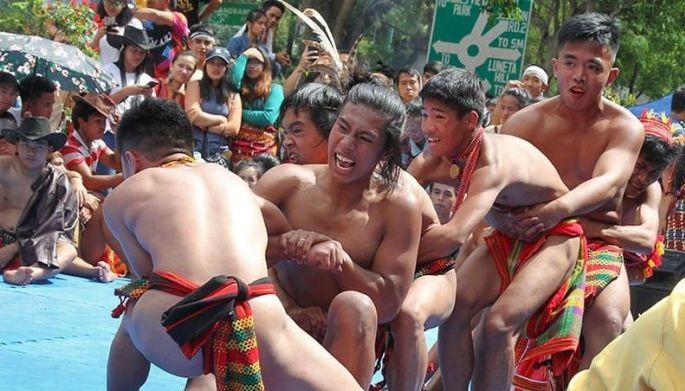MANILA, Philippines — With most children hooked to digital games that lead to sedentary lifestyles these days, a lawmaker has filed a bill at the House of Representatives seeking to preserve “indigenous” games such as patintero, tumbang preso, taguan pung and siato.
In House Bill (HB) 6744, Parañaque City 2nd District Rep. Gus Tambunting said similar proposals have already been approved during the 17th and 18th Congresses, but they have yet to become a law due to “time constraints.”
Tambunting, however, underscored the need to introduce indigenous games to Filipino children, who are mostly into digital games that promote physical inability or a sedentary lifestyle.
In patintero or block the runner, players aim to cross the marked rectangle lines back and forth without getting tagged.
Tumbang preso or knock down the guard involves throwing a slipper at a tin can or bottle, which one player – the tayâ or “it” player – attempts to guard.
Taguan pung is the Filipinos’ version of hide and seek, while siato uses two sticks – the long stick serving as the bat and the short stick serving as the hit – played in a small hole on the ground.
“This bill aims to preserve the indigenous games that have been passed down by our ancestors. These indigenous games hope to develop the Filipino youth’s physical and mental health,” the measure’s explanatory note stated.
Physical inactivity can have “serious implications for people’s health” and is among the 10 leading causes of death and disability worldwide, according to the World Health Organization.
“Sedentary lifestyles increase all causes of mortality, double the risk of cardiovascular diseases, diabetes and obesity and increase the risks of colon cancer, high blood pressure, osteoporosis, lipid disorders, depression and anxiety,” the WHO said.
Under HB 6744, the Philippine Sports Commission, Philippine Olympic Committee and the local government units shall be empowered to conduct annual regional and national indigenous sports competitions.
The proposed measure defines indigenous games as those “traditional sports and games or activities inherent to the different indigenous cultures communities reflecting their rich cultural heritage, traditions or customs handed down from generation to generation.”


